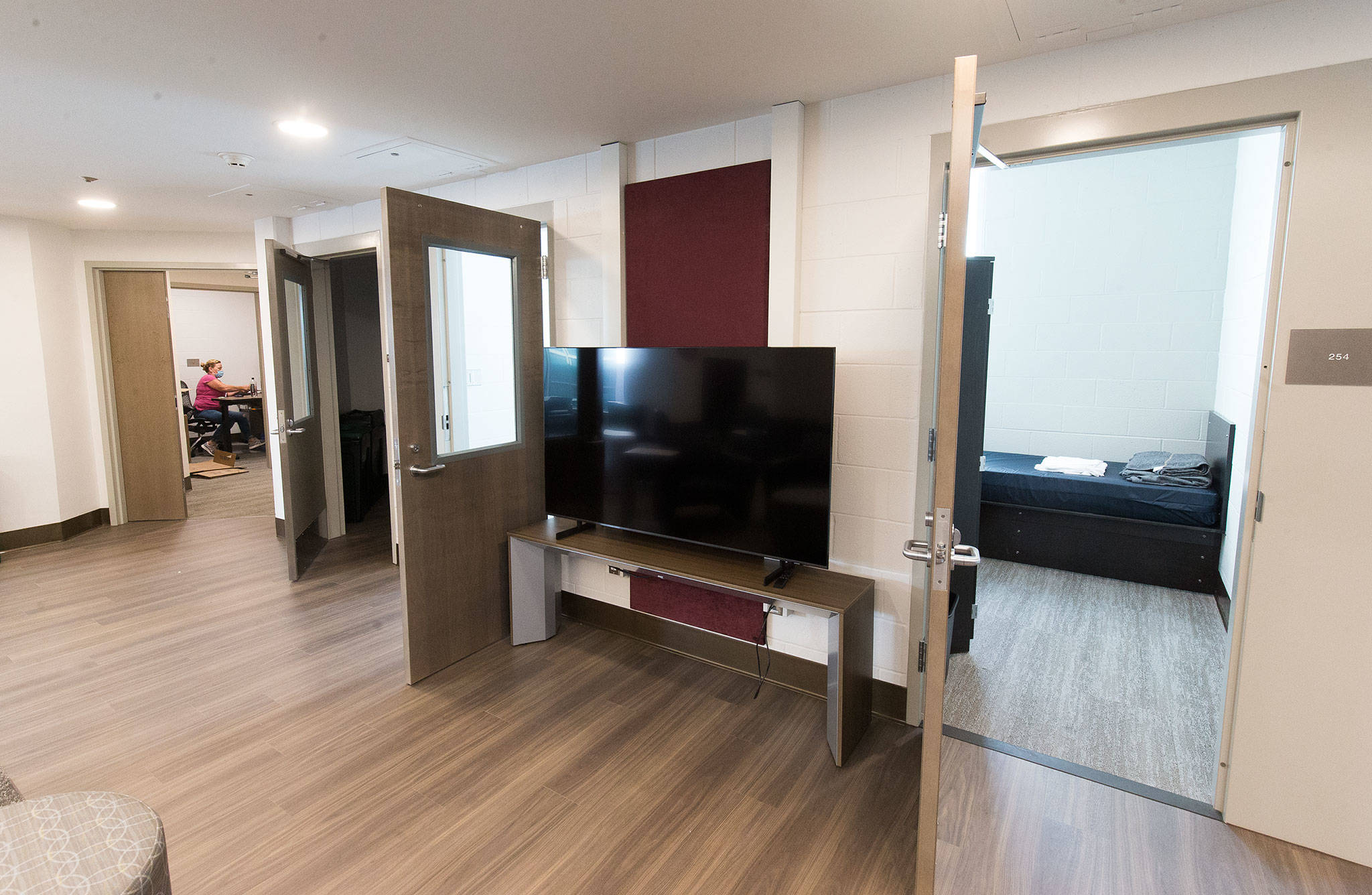EVERETT — A new 32-bed behavioral health and substance abuse treatment facility in the county’s juvenile detention center opens to patients this week.
The Denney Juvenile Justice Center, located in Everett’s Delta neighborhood, will house the twin 16-bed spaces. One “co-occurring” unit will be for adults dealing with both addiction and mental health issues. The other will focus on people with opioid addictions. Stays on the opioid-specific floor will likely last between 28 and 56 days; it’ll be 60 to 90 days in the addiction and mental health unit.
In the first three months of this year, Washington had 418 overdose deaths, compared to 378 in the same period in 2020, according to the state Department of Health. Nearly half of those were fentanyl-related. Overdoses are increasing among all ages, races and socioeconomic backgrounds, but increases were most pronounced among people of color, according to the Department of Health.
“For a county with a population of over 800,000 now, we have no substance use disorder inpatient facilities for adults who are indigent and low income,” said Cammy Hart-Anderson, manager of the county’s Division of Behavioral Health and Veteran Services.
Seattle-based Pioneer Human Services will run the new facility. The provider also operates the social services hub at Everett’s repurposed Carnegie Library.
Rowell Dela Cruz, the director of the Pioneer Center North treatment center in Sedro Wooley, estimated there would be about 20 people in the Everett facility when it was scheduled to open Monday.
A majority of the adults voluntarily staying there will probably be from Snohomish County, Hart-Anderson said.
She had “no doubt” the demand for the beds will be high. Patients will get referred from a variety of sources, such as jails, detox facilities and outpatient providers.
The facility will have 30 to 40 staffers, including a case manager to connect patients with services and post-stay housing, a peer counselor they can meet with daily and supportive housing, and employment specialists. There will also be full-time substance use counselors and behavioral health clinicians. And there are exam rooms where people staying can get looked at by medical coordinators.
“We definitely need more beds in our community to help those individuals out, especially a safe place for them to learn and develop skills of learning a substance-use free life,” said Dela Cruz, who will be heading up the programs at the new site.
This isn’t the only new Snohomish County facility looking to alleviate bed shortages. Earlier this month, a 24-bed mental health unit opened at Providence Regional Medical Center Everett. That facility has been operating with 20 beds filled since the week it opened in line with current staffing levels, hospital spokesperson Cheri Russum said July 23.
Treatment will be largely funded by Medicaid. Previously, patients eligible for Medicaid would get sent to eastern Washington for inpatient help, making it difficult to connect them with local, ongoing support after they leave the facility, Hart-Anderson said.
The new space cost $17.5 million. Most of that — over $11 million — came from the state capital budget. Another $3.3 million came from the North Sound Behavioral Health Organization. And the county chipped in $2.8 million. Construction on the facility began in spring 2020.
The two spaces — one on the first floor, the other on the second — are basically identical. More than half of the over 20,000-square-foot facility has been remodeled from the juvenile lockup and the rest is newly built. The remodel has changed the spaces from the concrete walls and uncomfortable beds of a jail to more communal areas with big screen TVs.
The facility has been several years in the making. The project, formally called the North Sound Behavioral Health Treatment Center, started in 2017. The juvenile center, built in the 1990s with 130 beds, was tapped as a possible spot with diminishing occupancy following reforms aimed to keep youths out of detention. In 2001, the average daily population was 84 juveniles, according to Brooke Powell, the county Superior Court’s assistant administrator for juvenile court operations. Between January and June of this year, that average had plummeted to four people.
Jake Goldstein-Street: 425-339-3439; jake.goldstein-street@heraldnet.com. Twitter: @GoldsteinStreet.
Talk to us
> Give us your news tips.
> Send us a letter to the editor.
> More Herald contact information.




























